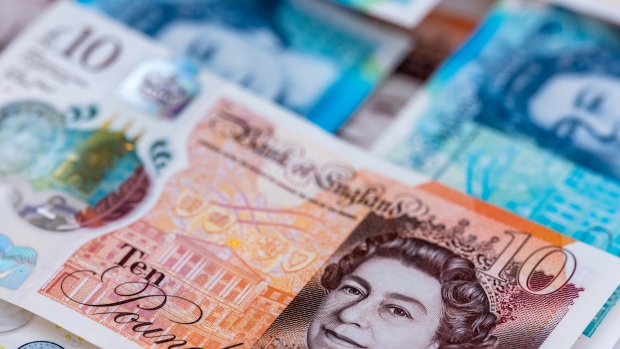Jan 15, 2019
Pound could flop if May loses by more than 100 votes, analysts say
, Bloomberg News

The pound may manage to hold its ground if Theresa May’s Brexit deal is defeated in Parliament by 100 votes or less, as the market would then eye the odds of the prime minister seeking a second vote, analysts say.
The U.K. premier’s widely unpopular pact with the European Union will face the House of Commons Tuesday, where she will need a majority of lawmakers to vote favorably for the agreement to be approved. A loss by more than 100 votes could raise risks -- including that of a leadership challenge by the opposition and of a subsequent election -- that would send sterling lower.
Below is a compilation of analysts’ views on the likely outcome of tomorrow’s meaningful vote, and the potential sterling reaction:
Credit Agricole
- May’s loss with “a margin of 100 votes or less could see the pound consolidating further,” said head of G-10 currency strategy Valentin Marinov
- “A greater margin than this coupled with a vote of no confidence by Labour could see sterling relinquishing its recent gains”
- GBP/USD will be around $1.25 if May loses by more than 100 votes; says CA has a trade that targets $1.39 in six months as it sees sterling embarking on an uptrend
Mizuho Bank
- “If she loses by 100 votes or less, I think she still has a chance,” said Neil Jones, head of hedge-fund currency sales
- If May is defeated by more than 220 votes, sterling could fall to $1.225
- On a loss by a margin of 20 to 100 votes, pound could rally to $1.3350; a rejection by 20 votes would see sterling rally with potential to reach $1.35
Danske Bank
- A loss by more than 100 votes will be negative for the pound initially, according to analyst Morten Helt
- Base case is that May’s deal will fail to get Parliament’s approval tomorrow, “after that, we are in uncharted territory”
- Probability of another meaningful vote is high, while likelihood of a second referendum is also increasing
- Call for a second referendum could also come after a potential second vote
- Sees GBP/USD around 1.25-1.30 until further clarification
- “Extension of Article 50 would be positive for GBP as it reduces the probability of a no-deal scenario. However, it depends on the reason behind a possible extension”
Commerzbank
- “Our U.K. analyst assumes that the magic number might be somewhere around 40 -- losing with a lower margin keeps the hopes alive that the proposal could be accepted at some point following repeated votes,” said foreign-exchange strategist Esther Reichelt
- “Losing by a higher margin keeps all options on the table, including a new government one way or the other (i.e. voluntarily or forced)”
- Loss by a narrow margin would be sterling-neutral or slightly positive; rejection by large margin “would most likely be substantially GBP-negative if she doesn’t manage to officially delay the Brexit process (that is, delaying Article 50 procedure) beforehand”
Rabobank
- “Bearing in mind that the EU is not showing any sign of giving ground, May would likely have to lose the vote by a much smaller margin that expected for the market to believe that she could win it in a second round -- probably less than 50 votes,” said Jane Foley, head of Group of 10 currency strategy
- GBP would likely be encouraged on this outcome and rally to $1.30, as it signals May’s position isn’t as weak as is currently believed and would reduce the chances of Labour Party’s Jeremy Corbyn calling a no-confidence vote
- A loss by more than 200 votes would likely make it difficult for May to hold onto her leadership; markets fear a general election
- A far-left Labour government would weigh on pound -- GBP/USD would drop to $1.15/$1.20 levels

